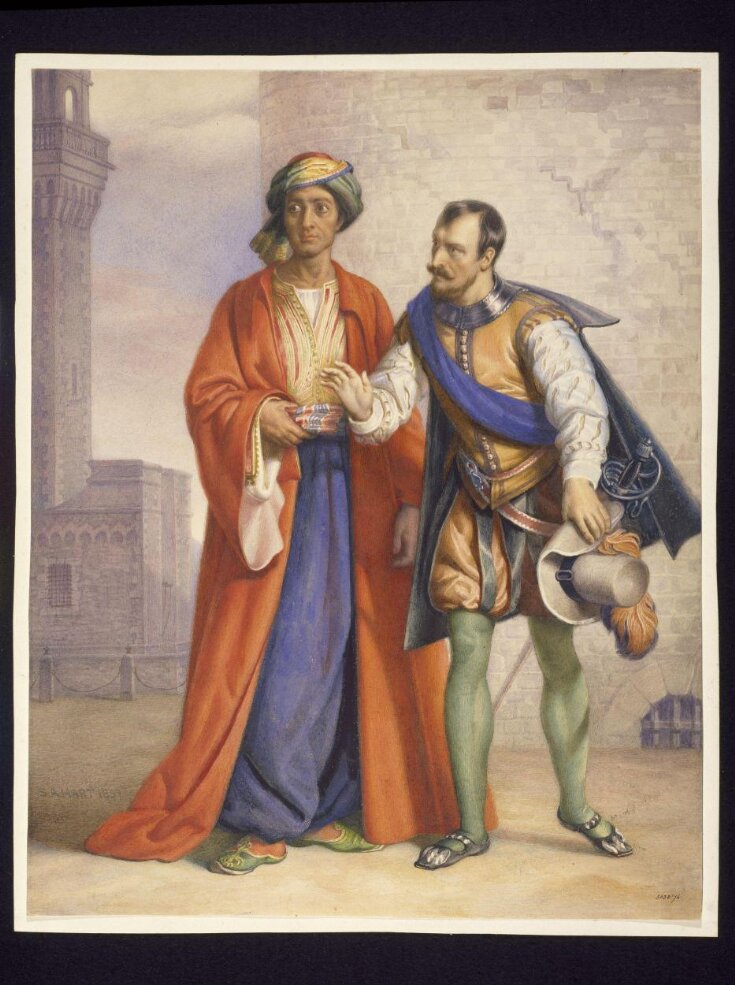Monday
I have written frequently about what I regard as America’s (and the world’s) Grendel problem. This is the resentment that eats away at people, causing them to act violently against their fellows or, at least, to countenance socially disruptive behavior. While Grendel is my go-to literary archetype for resentment, I also see Milton’s Satan as a worthy candidate and now, after having taught Othello for a second time, would like to add Iago to the mix.
That’s because my students, especially Bo Sain, have been helping me see the extent to which Iago is driven by such resentment. But first, we need a handy definition of the resentment I have in mind—or “ressentiment,” as German philosopher Friedrich Nietzsche and Marxist literary theorist Fredric Jameson have called it.
According to Oxford Reference, “ressentiment” is a “vengeful, petty-minded state of being that does not so much want what others have (although that is partly it) as want others to not have what they have.” Nietzsche applied the concept to the powerless—notably to early Christians—but I prefer Jameson’s reworking of the concept. As Jameson noted, you can have power and still feel resentment towards the powerless. In the words of Oxford Reference, Jameson saw the ruling bourgeois elite as filled with ressentiment, which they use “to simultaneously justify their privileges and rationalize the denial of those same privileges to the poorer classes.” I would add that ressentiment often rears its ugly head when the poorer classes make forward strides.
Ressentiment is as good an explanation as I can think of for Iago’s unhinged hatred for Othello. We learn in the very first interchange of this hatred—”Thou told’st me thou didst hold him in thy hate,” Roderigo says to Shakespeare’s consummate villain—and later on Iago says directly, “I do hate him as I do hell-pains.”
The explanation Iago gives is that Othello has promoted Cassio over him:
I know my price, I am worth no worse a place:
But he; as loving his own pride and purposes,
Evades them, with a bombast circumstance
Horribly stuff’d with epithets of war;
And, in conclusion,
Nonsuits my mediators; for, ‘Certes,’ says he,
‘I have already chose my officer.’
And what was he?
Forsooth, a great arithmetician,
One Michael Cassio…
Yet this explanation does not fully account for Iago’s subsequent scorched-earth campaign of destruction. After all, people get passed up for promotion all the time without setting off fireworks. Other explanations also fall short, such as Iago’s sexual feelings of inadequacy: Iago sees Othello as a “black ram” and imagines (with no proof given) that he has slept with Iago’s wife. But again, why would this cause Iago to go all in to destroy the moor?
Some have argued that Iago loves Othello (there are hints in the play of homosexual desiring) and that he feels betrayed and abandoned when Othello marries Desdemona. This is more plausible to me in that a sense of betrayal, of love turned to hate, is the kind of thing that could account for the intensity of Iago’s emotions. But for my money, the play doesn’t give us enough evidence to support such a claim.
Ressentiment, on the other hand, makes a lot of sense. As my student Bo and I discussed, Iago can’t forgive Othello because Othello makes him feel small. As a Venetian citizen, he believes he is entitled to feel big, yet this foreigner of color enters the scene, promotes someone over him, seems to have a potency that Iago lacks, marries brilliantly (outshining Iago’s marriage), and in general acts as though he deserves it all. At the same time, we see signs of Iago’s insecurity in the fact that he has married a doormat of a wife—my student Merrit Newton wrote on this—and this insecurity is compounded by Othello’s belief in his own superior qualities. He’s a proud man who believes he belongs where he is. As a result, Iago is willing to take immense gambles—gambles which prove self-destructive as he is headed for the torture chamber by the end of the play—to bring about Othello’s fall.
We saw such ressentiment at work in the eight years that Barack Obama was president, with gun sales rocketing and rightwing hate groups proliferating. The haters were gratified by Donald Trump’s birth certificate nonsense, which was a way of knocking Obama—with his position, his talented wife, and his classy behavior—off his high horse. It surfaced again in the unhinged attacks on Joe Biden’s immensely qualified Ketanji Brown Jackson, the first Black woman nominated to the Supreme Court. It didn’t matter that both Obama or Jackson are immensely skilled—in fact, their merits just make the haters feel smaller. Trump, by contrast, won the haters’ immense gratitude by seeming to vindicate their feelings–so much so that they were willing to storm the Capitol on his behalf. Many have ruined themselves in the process, but feeling small is so painful—the ressentiment runs so deep against those whom they blame for (as they see it) casting their lives into shadow—that they will risk their businesses, their comfortable lives, and their own futures to give it vent.
Grendel is still my favorite archetype for ressentiment. But Milton’s Satan and Shakespeare’s Iago are tied for second.
